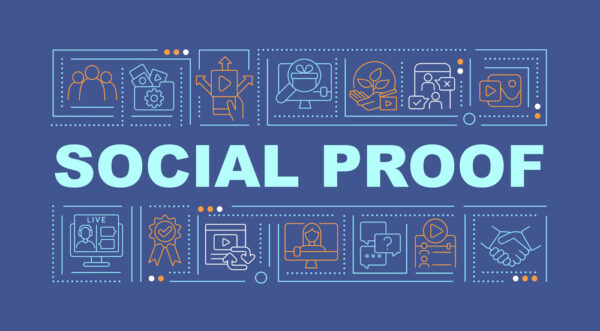
Achieving enterprise-level success can be an uphill battle for small businesses. Limited resources, crowded markets, complex sales cycles, larger competitors, and more can all pose significant obstacles. That said, there are ways to level the playing field — and even tip it in favor of smaller players.
Social proof marketing is one such strategy. It can empower small businesses to overcome seemingly overwhelming challenges, often with remarkable results.
Understanding the challenges of small businesses
Compared to large-scale organizations, small companies face unique limitations that can hinder their ability to gain traction and grow in competitive markets, such as:
- Limited resources. Small businesses often have constrained budgets and limited personnel. This can make it challenging to invest in extensive marketing campaigns or large-scale sales.
- Finding the right market. Identifying the ideal target market and reaching it effectively can be tough for smaller businesses that have a lot riding on each sale.
- Building a strong value proposition. Standing out in a crowded marketplace can be challenging for small companies, especially if they struggle to compete on price.
- Complex sales cycles. Navigating an intricate or lengthy sales cycle requires time, patience, and resources smaller companies may lack.
- Competition with larger enterprises. Competing against industry giants with vast resources and brand recognition can be a major obstacle.
Remember the story of David and Goliath? The parable teaches us that a small and determined force can overcome a much larger foe with the right tool. For smaller organizations, your slingshot is social proof marketing.

What is social proof marketing?
Social proof marketing leverages the influence of group behavior and testimonials to build credibility and trust for a product, service, or brand. It involves showcasing positive feedback, reviews, ratings, endorsements, or user-generated content from customers or influential figures to demonstrate value and popularity.
By displaying evidence of others’ satisfaction, social proof marketing aims to convert potential customers. Some examples include:
- Expert social proof. Customers often assume experts have more knowledge and experience. This makes them credible sources of trustworthy information.
- Celebrity social proof. People love to emulate celebrities. Their endorsements carry significant weight in influencing consumer choices.
- User social proof. Customers trust peer reviews and recommendations, making them more likely to purchase a product or service that gets positive feedback.

Leveraging digital marketing with content and SEO
Social proof marketing requires omnichannel considerations, especially where it ties into search engine optimization (SEO). To harness the power of social proof, small businesses should focus on content marketing.
For example, highlight your company’s expertise through interviews or quotes from industry experts, client testimonials, case studies, statistics, and data from reputable external sources. These efforts establish your brand as a trustworthy source of information and keep your audience engaged.
The approach is gaining traction. Forty-one percent of marketers in B2B organizations reach out to customers at least weekly to build social proof, 73% leverage testimonials, and another 41% use case studies as social proof. By incorporating social proof content into digital marketing strategies, small businesses build credibility, engage their audience, and create an environment of customer trust.
Forging strategic partnerships
How do you simultaneously create social proof with added reach to new audiences? These partnerships involve collaborating with other businesses — often those complementary to your own — to achieve mutual goals. Leveraging partnerships helps you expand your reach and tap into a broader customer base. This can be especially valuable if your partner operates in a related but noncompeting industry or offers products or services that complement yours. For example, a small software company specializing in project management software could partner with a small IT consulting firm to offer integrated solutions.

By sharing resources and customer networks, both businesses can reach a larger and more diverse audience than they could on their own. Small businesses also tend to face risks associated with market fluctuations, changing customer demands, or technological disruptions. By forming partnerships, businesses can share these risks.
For instance, a small manufacturing company could partner with a logistics provider to streamline supply chain operations and reduce costs. Pooling resources can also include shared marketing efforts, which can be more cost-effective and impactful than individual marketing campaigns. Simply networking within your industry and forming strategic partnerships can provide access to valuable connections and insights. Attend industry events, join professional organizations, and actively engage with potential partners. Building alliances with well-established industry players can enhance your credibility and reputation — which is further social proof.




